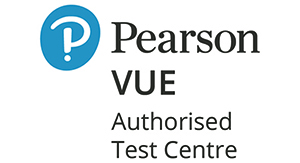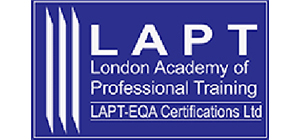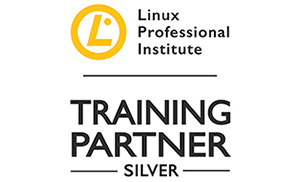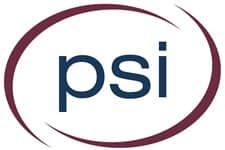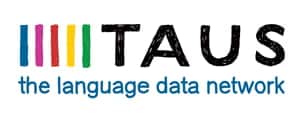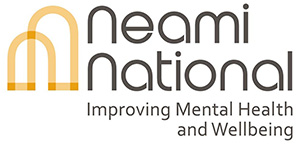IREB Requirements Engineering Foundation
Requirements Engineering Foundation Training
The International Requirements Engineering Board IREB Certified Professional for Requirements Engineering CPRE certification course aims to train students to undertake the Requirements Engineering exam.
During the Requirements training, the topics covered include the general introduction to the basic concepts of Requirements Engineering, important terms used in Requirements Engineering, fundamentals of communication theory, requirements elicitation fundamentals, application of elicitation techniques, creating and managing the fundamentals of the requirements and modelling the requirements using use cases.
Topics related to data modelling, functional modelling and activity modelling are also touched upon. After completing the Requirements training, one can demonstrate a thorough understanding of Requirements Engineering and can attempt the Requirements Engineering certification exam.
This course covers syllabus 3.0.
The requirements engineering certification is a key requirement for the following jobs:
- Business Analyst
- Requirements Engineer
There are no pre-requisites for undertaking Requirements Engineering Certification exam.
Candidates can achieve this certification by passing the following exam(s).
- CPRE-FL_Syll_3.0: IREB Certified Professional for Requirements Engineering, Foundation Level
The Requirements Engineering certification exam if included in your course can be registered and attempted within 3 months of course/module completion at Logitrain training centre on weekdays during normal business hours (excludes public holidays)
Requirements Engineering Course material included
One can attain following skills during requirements engineering training
- Understanding the basic concepts of Requirements Engineering
- Understanding the Requirements Elicitation Fundamentals
- Application of Elicitation Techniques
- Creating and Managing the Requirements Documentation
- Modelling the Requirements using Use Cases
- Understanding the basics of Data Modelling
- Understanding the Functional and Activity Modelling
- Validating and Negotiating the Requirements
- Managing the Requirements
- Requirements Engineering Tools & Additional Techniques
This course is likely to add to the employment related skills of the participants. The skills developed are likely to be used in the course of being an employee or working in a business.
Following people can attend Requirements Engineering training
- University Students
- Recent Graduates
- Business Analysts
- Requirement Engineers
- People aspiring to become Business Analysts or Requirement Engineers
-
- Introduction and Foundations
The role of Requirements Engineering in software development.
Important terms in Requirements Engineering.
Fundamentals of communication theory.
Requirement types.
Definition of the considered system
Its boundaries and context.
Delineation of considered system from irrelevant environment.
System and System Context - Requirements Elicitation
Identify stakeholders
Different types of elicitation techniques and their usage - Requirements Documentation
Significance of requirements documentation.
Structure and quality criteria for requirements documents.
Different types of requirements documents.
Importance of a glossary. - Documentation of Requirements using Natural Language
Effects of natural language.
Common problems when documenting requirements in prose. - Model-based Documentation of Requirements
Documenting requirements with models.
Different types of models and how and when to use them. - Requirements validation and negotiation
Predetermined quality criteria.
Identifying conflicts between stakeholders and resolving them. - Requirements Management
Assigning attributes to requirements.
Defining views on requirements.
Prioritizing requirements.
Tracing requirements.
Versioning requirements.
Managing requirement changes. - Tool Support
Different types of tools.
Evaluation of tools.
- Introduction and Foundations
We highly recommend spending ample time for self-study during this course by reviewing and consolidating what you’ve learned, to be well prepared for the exam.

Take the certification exam within 3 months of course / module completion

Take the official vendor certification exam at the Logitrain training center

Course material in digital format is included for flexibility and ease of use

Mock test is included in the full-time courses to assist with your preparation

Our trainers are highly skilled with expertise and extensive hands-on experience

Relax, we will beat competitor’s advertised price in Australia. Our course has no extra costs
| Location | Type | Duration | Price | Dates | |
|---|---|---|---|---|---|
| Location | Type | Duration | Price | Dates |
The supply of this course/package/program is governed by our terms and conditions. Please read them carefully before enrolling, as enrolment is conditional on acceptance of these terms and conditions. Proposed dates are given, courses run subject to availability and minimum registrations.
Find out why we are the leading choice to help boost your career in Australia
| Approachable and knowledgeable; comfortable surroundings. Logitrain does make IT training easier |
I recently followed the ITIL Foundation course at Logitrain. The training, materials and facilities were excellent and I would not hesitate to train with Logitrain again.
Thanks for a great week! Really enjoyed and feel I picked up a lot. Great Trainer! Will definitely look at further studies here.
Well-presented and able to convey immense knowledge to class. All queries were responded to promptly.
Excellent teaching method, easy to understand.
Logitrain provided a valuable insight into ITIL and enabled me to excel and advance my knowledge through a simple and well organised series of sessions.
Great place to study for certification, knowledgeable persons, excellent customer service. Ready to answer queries on the spot, very helpful.
The trainer was very patient and gave everybody the opportunity to participate.
The trainer explained everything very well. Logitrain was very helpful for me in getting a better overall understanding of CCNA. I previously had studied it 2 years earlier but required revision
Over 1000 organisations have relied on Logitrain to be their trusted training partner.

Don’t Wait. Please fill the form now.





